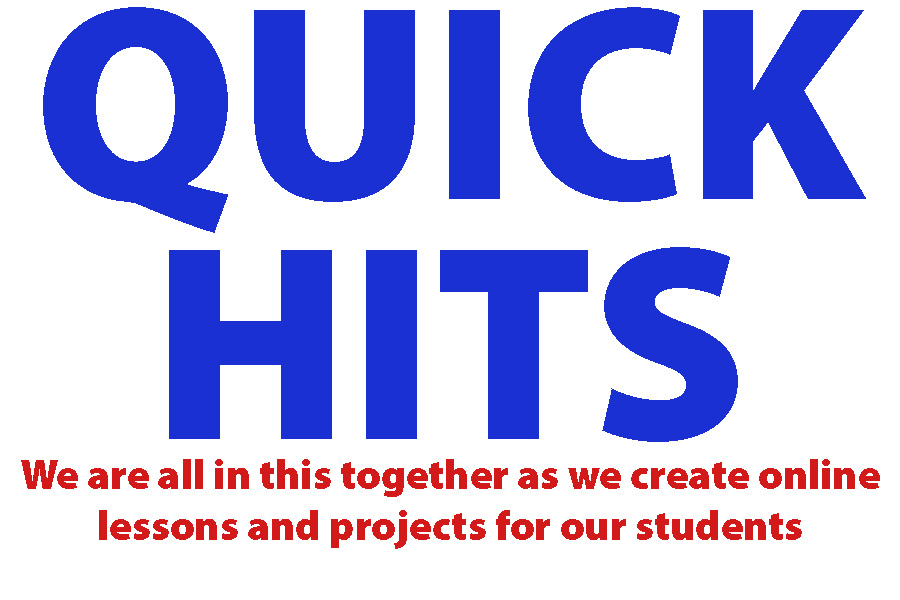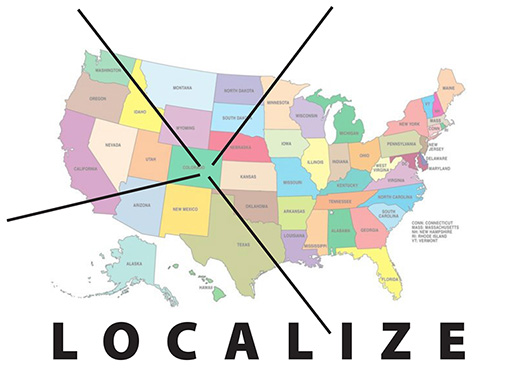At some point, it’s time to wrap things up for the school year, and that is probably quite soon for our students and for our emergency foray into remote teaching and learning. The scholastic journalism community has stepped up with all sorts of resources, lesson ideas, and assorted material that can help advisers and their students not only now but down the road. Here is a selection of resources and links that we have curated over the past couple weeks:
Denver Post publishes a Day in the Life that can be a model for your reporters
On April 16, reporters from 22 news outlets set out to record what a day was like for Coloradans in the midst of the coronavirus. Stories came in from around the state, stories of hope, kindness, resilience, and yes, fear. Check out the in-depth coverage that the Post published April 26. Great journalism and a fine model of collaborative team reporting.
Looking for accessible summer classes for returning students?
The Media Now summer workshops, led by Aaron and Kate Manfull, have gone online-only, which is disappointing for those wanting the full summer journalism workshop experience. But going online also makes the content and spirit of the workshop more widely available. You can get all the info and more here on the site: https://medianow.press/online/And if you are interested in some quick lessons for your underclassmen, Media Now and Drake University media professors have put together a series of FREE online workshops and they drop on Monday, May 11.
- Taking Your Cellphone Portraits to the Next Level
- Crisis Communication
- 5 Tips for Better Writing
- Hands-Off Editing: Put Down the Red Pen
- Fun with Adobe After Effects
- Improving your Social Media with Native Content
- Tips for Shooting Better Video with Your Cell Phone
- Better Design Through C.R.A.P.
- Using Research to Strengthen Your Publication
Students and advisers can sign up for the free course by going here: https://my.medianow.
Need some support for yearbook staffs looking to the 2021 book?
Mike Simons, award-winning adviser and regular JEA listserv contributor, recently published a new Yearbook Whys podcast episode and an accompanying guided notes & brainstorm kick-starter for 2021 theme development available for advisers working with their staffs through distance learning. You can access those resources here: tinyurl.com/theme25 The guided notes are a linked PDF at that page. This episode features Smoky Hill HS adviser Carrie Faust.
You can access six of Mike’s podcasts, titled The Yearbook Whys, here.
The Yearbook Whys podcast is available anywhere you get your podcasts, including Apple, Google Play, and Spotify.
Need a quick, inspirational video to motivate your new staffs?
If you’re interested in feeling some feels today, take two minutes and 10 seconds to watch this video put together by Jim McCarthy, CJE from Joseph Gregori High School in Modesto, Calif. on behalf of the Journalism Education Association of Northern California. It features students and advisers from California, Kansas, South Carolina, Texas and Virginia.
Think of it as a love letter from JEANC to you, your students and all the great work being done in this time of crisis. Cool stuff.
We need continuous media literacy resources, and the News Literacy Project has us covered
Our friends at the News Literacy Project are holding a series of four free webinars, addressing essential news literacy topics, every Thursday in May (May 7, 14, 21 and 28) at 2 p.m. ET/11 a.m. PT:
Sessions descriptions and dates: (You must register for each one separately)
What it means to be ‘news-literate’: The skills students need to know – May 7
We’ll provide an overview of the news literacy skills that students must learn to be reliably informed, such as recognizing the difference between news and opinion, identifying misinformation, evaluating evidence, using fact-checking and digital verification tools, and discerning various types and forms of bias. (Note: this is a repeat of the previous webinar on April 7th)
Register: https://newslitproject.zoom.
Exploring the misinformation landscape – May 14
Learn how to teach students to stop using the phrase “fake news” and to identify the many types of misleading, inaccurate and false information that they encounter every day. We use examples of misinformation to engage students in news literacy and civic learning, and we introduce digital verification skills and tools for debunking manipulated and false images. We also explain the standards of quality journalism, such as fairness, verification, balance and context.
Register: https://newslitproject.zoom.
Teaching digital verification to spark news literacy learning – May 21
Dive deep into the tools and skills needed to verify the authenticity of information, and learn to create engaging fact-checking investigations that inspire students to investigate viral content. Topics include using reverse image searches to determine authenticity; researching domain registration to discover a website’s owner; using archivers to explore deleted or changed content; developing keen observation skills to detect false context; and using Google Street View to confirm locations. Access to News Literacy Project resources and classroom-ready examples is included.
Register: https://newslitproject.zoom.
Understanding bias: A nuanced approach to a vital news literacy topic – May 28
Bias is one of the most controversial and important subjects in news literacy. People frequently perceive and allege bias in news coverage — but what does this really mean? What makes a piece of news biased, and who decides? What role do our own biases play in our perceptions of bias? In this session, we’ll help you teach this vital, complex topic in ways that empower students to meaningfully evaluate the fairness and impartiality of news coverage.
Register: https://newslitproject.zoom.
They are allotting 90 minutes for each session to ensure they are able to address all questions during the Q&A period. Following each webinar, they will share the recording as well as additional links and resources via email.




